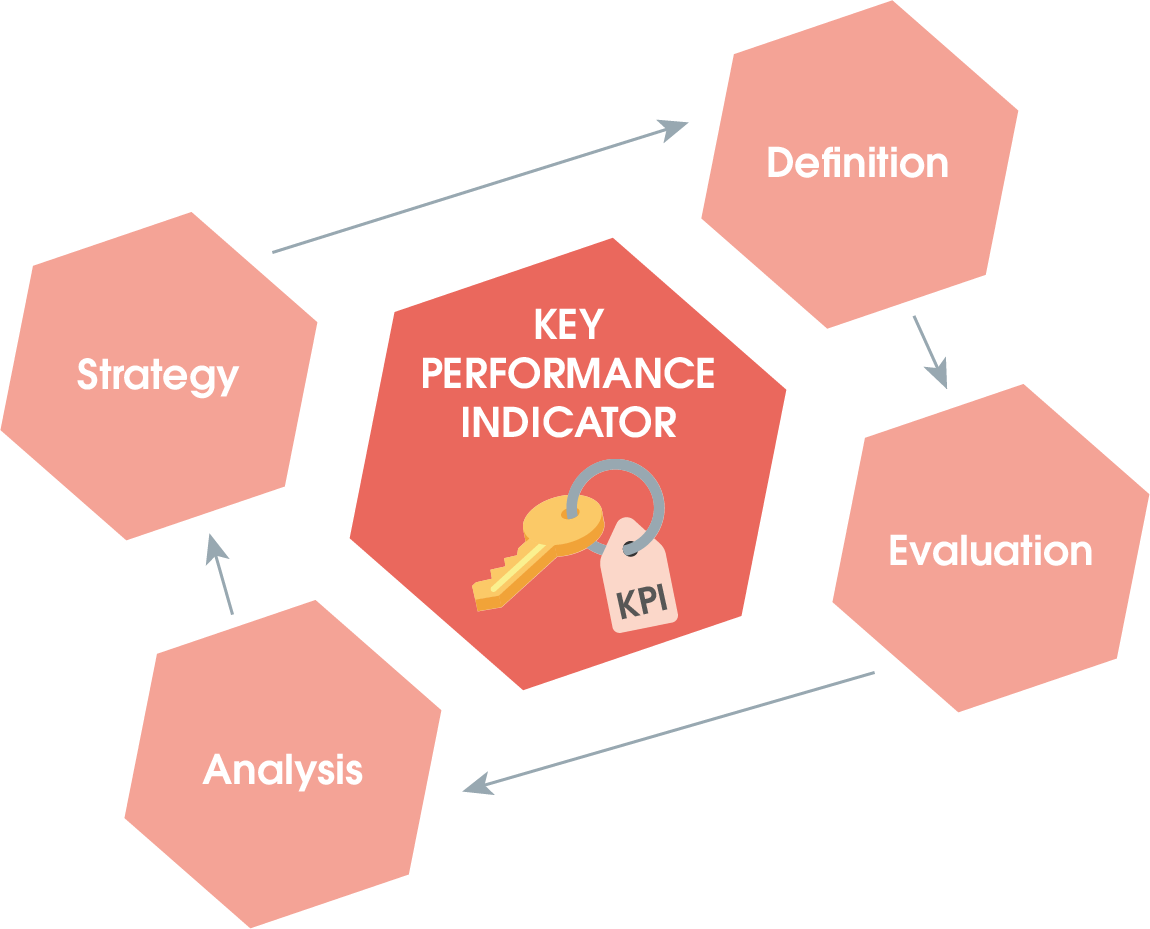USP is the acronym for Unique Selling Proposition or Unique Selling Point. It is therefore the unique selling point of a product, service or company. It can be anything that makes your product or service unique. ... Continue reading


A key performance indicator (KPI) is a measurable quantity that reflects the progress of a company, a department or a project in relation to important goals and strategic objectives. KPIs help to evaluate the efficiency and effectiveness of certain processes and to measure success.
For companies, KPIs are indispensable instruments for making strategic goals measurable and comprehensible. They provide clear orientation by showing progress and deviations from targets. KPIs help companies to deploy resources in a targeted manner and ensure that all departments are working towards common corporate goals.
KPIs promote transparency and comparability of performance, which strengthens employee motivation and enables continuous improvement of processes. In addition, KPIs facilitate benchmarking against competitors and provide a data-based decision-making tool for targeted expansion of market positions and securing competitive advantages.
The Key Performance Indicator is used to check and control the performance of a company. With the help of these key figures, your company can analyze and adjust certain processes and measures. Depending on the company and the industry, different KPIs are used to check performance. For controlling, for example, sales and revenue figures are of high importance. In sales, for instance, the number of leads received is interesting. Thus, a company defines different KPIs for the different departments.
KPIs fall into different categories, each covering specific areas of the business. The following table provides an overview of the different types of KPIs, and highlights typical examples for each category to illustrate their practical use in different areas of the business.
| Type of KPI | Description | Examples |
| Financial KPIs | KPIs that measure and evaluate a company’s financial performance. | Sales growth, profit margin, cash flow, return on investment (ROI) |
| Customer-related KPIs | KPIs that track customer satisfaction and loyalty as well as customer behaviour. | Customer Satisfaction Score (CSAT), Net Promoter Score (NPS), repurchase rate, customer churn rate |
| Process KPIs | KPIs that measure the efficiency and effectiveness of internal business processes. | Lead time, error rate, productivity rate, cycle time |
| Employee-related KPIs | KPIs that assess and promote employee performance and satisfaction. | Employee satisfaction, fluctuation rate, average sick days, training costs per employee |
| Marketing KPIs | KPIs that measure the success of marketing activities, often in terms of reach and conversion. | Conversion rate, cost per lead (CPL), return on marketing investment (ROMI), click-through rate (CTR) |
| Sales KPIs | KPIs that reflect the effectiveness of sales activities and sales performance. | Number of new customers, sales completion rate, average order value, sales revenue per employee |
| Project KPIs | KPIs that measure the progress and effectiveness of projects to ensure that goals are met on time and on budget. | Project completion rate, project budget variance, on-time delivery, project duration |
As already mentioned, for various departments, different Key Performance Indicators are of importance. The online marketing department places a lot of emphasis on the flow of visitors, i.e. traffic. However, to also keep an eye on performance and costs, the following KPIs are commonly used:
Selecting the right KPIs is crucially important. Setting the wrong indicators can lead to misinterpretation of data, wasted resources or even wrong business decisions. Here are some steps and considerations that can help you define the best KPIs for your company or project:
Setting the right KPIs requires both strategic thinking and a deep understanding of the business or project. By carefully selecting and regularly reviewing the KPIs, you can ensure that you are always on the right track and effectively pursuing your goals.
For KPIs to be effective, they must be actionable. This means that the key performance indicators must be clearly defined. An evaluation of the KPIs must take place after a predefined period (e.g. weekly or monthly). In this way, the specified key performance indicators are achieved more quickly and efficiently. Through a targeted analysis and comparison with data from the past, a strategy is then revised or newly developed in order to successfully complete the campaigns.

You want to learn more about exciting topics?
